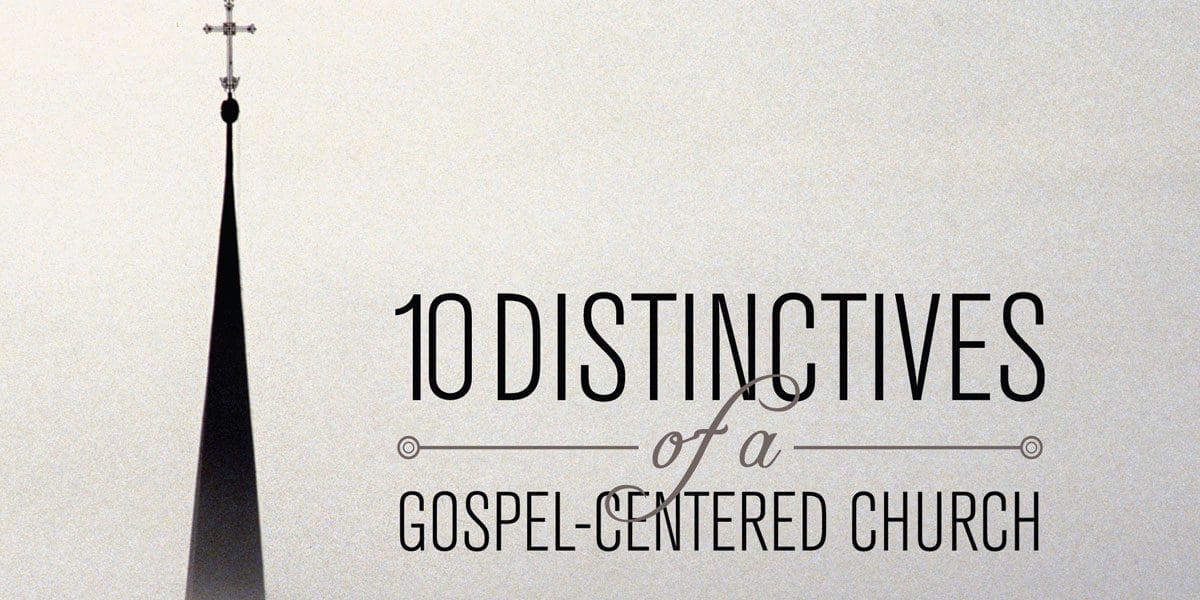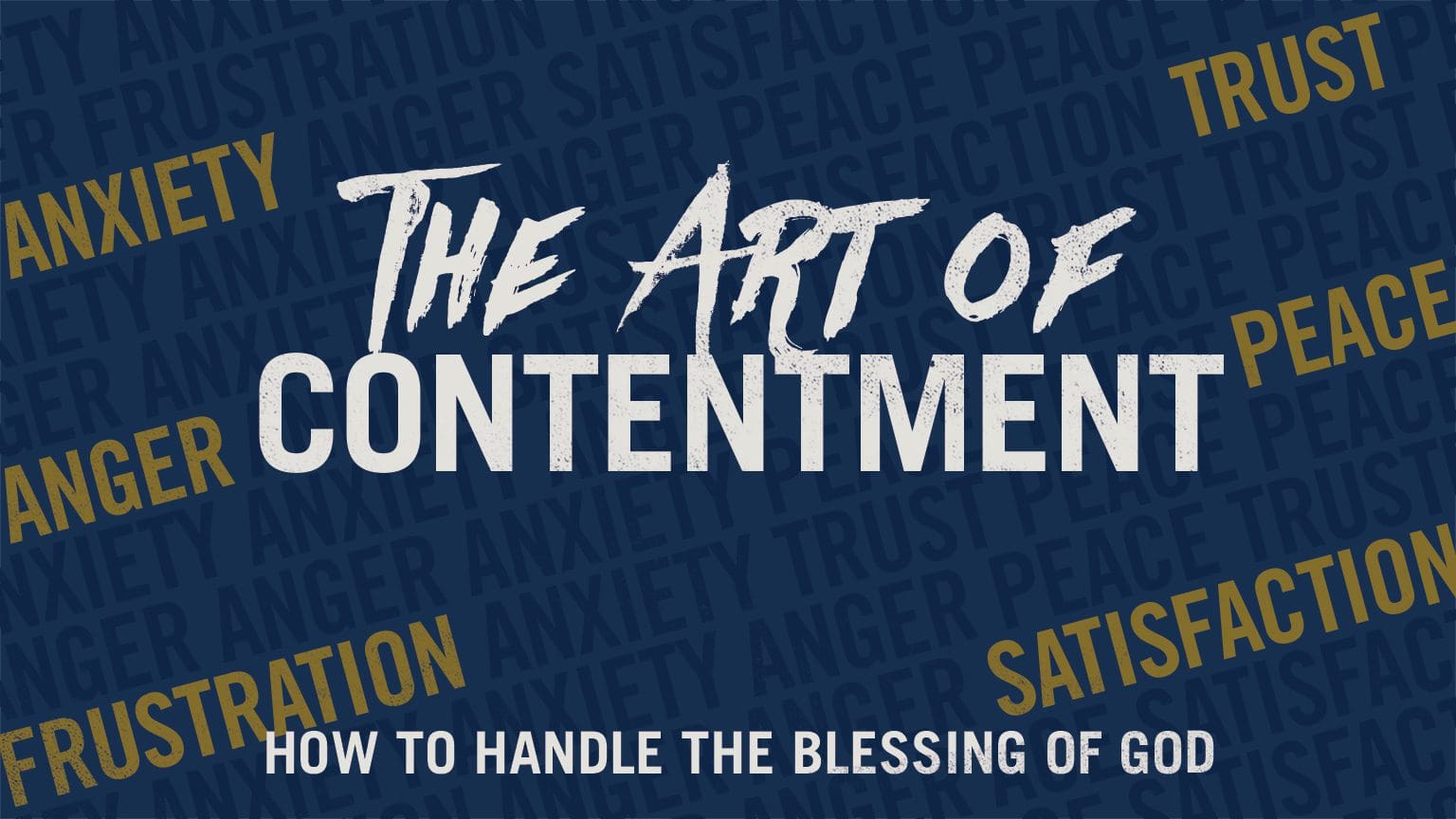But godliness with contentment is great gain. For we brought nothing into the world, and we can take nothing out of it. But if we have food and clothing, we will be content with that. (1 Timothy 6:6-8, NIV)
The message today comes in two parts. Paul speaks to “those who are rich” (v17), and to “people who want to get rich” (v9). There’s something for those who have less and something for those who have more today.
The problem is that we will all decide where we belong and then only hear half of what God has to say. However much you have, there are others who have more. However little you have, there are others who have less. All of us have more than some other people. All of us have less than some other people.
However much or little God has trusted to you, there will be seasons of life when you have less and seasons of life when you have more. So I want us to stand in both positions today and hear what God says to us when we have more and when we have less.
When You Have Less: Learn the Art of Contentment
“Godliness with contentment is great gain.” (1 Timothy 6:6)
We learned about godliness earlier in this series. Godliness is a God-centered life. It grows, not through the pursuit of a process, but through the presence of a person. Jesus Christ is the mystery of godliness (1 Timothy 3:16).
His presence in your life is your hope of becoming the person God calls you to be. Christ in you [is] the hope of glory (Colossians 1:27).
Contentment
“Godliness with contentment…” (1 Timothy 6:6)
Contentment is finding joy in what God has given to you. The opposite of contentment is greed. Luther makes the point that greed destroys your capacity to enjoy what God has given.
Contentment is a Christian grace that grows over time. It does not come quickly, easily or naturally. Paul says “I have learned to be content” ( Philippians 4:12).
How did he learn it? He tells us “I know what it is to be in need, and I know what it is to have plenty. I have learned the secret of being content” (Philippians 4:12).
He is saying: “There were times when I had plenty. But then God brought me to situations where I was ‘in need.’ And through that I learned something: I discovered the secret of being content.”
God used the experience of loss to produce the good fruit of contentment in Paul’s life. Have you discovered the secret of being content?
Jeremiah Burroughs described contentment as “a rare jewel.” [1] How can you find joy in what God gives you, especially when it is less than you had before? Burroughs has great wisdom on how to obtain this jewel:
“A Christian comes to contentment, not so much by way of addition as by way of subtraction… Contentment does not come by adding to what you have, but by subtracting from what you desire. The world says that you will find contentment when your possessions rise to meet the level of your desires… The Christian has another way to contentment, that is, he can bring his desires down to his possessions.” [2]
Great gain
“Godliness with contentment is great gain.” (1 Timothy 6:6)
Not just gain, but “great gain.” Paul says “If you have godliness with contentment, it will be of huge advantage to you.” Why is this? Why is godliness with contentment great gain? Paul gives four reasons:
1. You cannot keep what you gain
“people who want to get rich” (v9)
If getting rich is your goal, you cannot keep what you gain. “We brought nothing into the world, and we can take nothing out of it” (v7). You may get rich, but you cannot stay rich. You cannot keep what you gain in this world.
2. You will encounter powerful temptations
“People who want to get rich fall into temptation and a trap and into many foolish and harmful desires that plunge men into ruin and destruction… the love of money is a root of all kinds of evil (v9,10)
If you set your heart on money, you expose yourself to powerful temptations that ruin many people.
3. You may wander from the faith
“Some people, eager for money, have wandered from the faith” (v10)
In the parable of the sower, our Lord speaks about “seed that is choked by thorns and thistles.” The seed is God’s Word. The thorns and thistles are “the worries of this life, and the deceitfulness of wealth, and the desires for other things” (Mark 4:19). Money chokes the fruit of God’s Word in the lives of some people.
4. You will experience great sorrow
Some people, eager for money, have… pierced themselves with many griefs (v10)
Money is a great servant but a terrible master. If you set your heart on money, money will break your heart. You will not keep what you gain. You will fall into powerful temptations. You may wander from the faith. You will pierce yourself with many griefs and sorrows.
That’s why godliness with contentment is great gain. When you have less, learn the art of contentment. This rare jewel is not found when you have more, but when you have less.
Bring your desires down to the level of your possessions. Learn to enjoy what God has given more than you grieve what He has taken away. Practice the art of godly contentment and you will find that it is great gain.
When You Have More: Learn the Art of Discontent
“Command those who are rich in this present world not to be arrogant nor to put their hope in wealth, which is so uncertain, but to put their hope in God, who richly provides us with everything for our enjoyment.” 1 Timothy 6:17
Paul is making a contrast here between two kinds of hope: Some people “put their hope in wealth, which is so uncertain.” Others “put their hope in God, who richly provides us with everything for our enjoyment.” These are very different kinds of hope.
When God gives you more, you need to develop a holy discontent with the things of this world. The more God gives you, the more important this becomes.
Borroughs makes this point well:
“It may be said of one who is contented in a Christian way that he is the most contented man in the world, and yet the most unsatisfied man in the world… To join these two together [is] a great art and mystery. Though he is contented with God in a little, yet those things that would content other men will not content him.
The men of the world seek after wealth, and think if they had thus much… they would be content… If I had, perhaps some man thinks, only two or three hundred a year then I would be well enough. [He wrote this is 1648!] If I had but a hundred a year, or a thousand a year, says another, then I would be satisfied. But a gracious heart says that if he had ten hundred thousand times so much a year, it would not satisfy him…
Godliness teaches us this mystery: Not to be satisfied with all the world for our portion, and yet to be content with the meanest condition in which we are.” [3]
This is the complete opposite of what you would expect. The world is discontent with less and says “You will find contentment with more.” God says “Learn to be content with less, and learn to be discontent with more.”
Our Lord told a story about a man who made a lot of money (Luke 12:13-21). He stored it up, and then he said to himself “You have plenty of good things laid up for many years. Take life easy—eat, drink and be merry.” He was comfortable and content, sitting on what he had stored up. But that night he died.
Jesus said that this man was “a fool,” and he added “This is how it will be with anyone who stores up things for himself and is not rich toward God” (Luke 12:21).
Learn to be disturbed about the fact that you will leave this world and you cannot take what you have with you. When you have more, learn the art of discontent. As God gives you more, ask how you can use it.
Instead of saying “You have plenty of good things, take life easy,” the man in Jesus story should have said “I have plenty of good things, now how can I use them to invest in eternal things?”
Jesus said “Store up treasures in heaven” (Matthew 6:20). Paul says the same thing here: People who are rich in good deeds, generous and willing to share “Lay up treasure for themselves as a firm foundation for the coming age, so that they may take hold of the life that is truly life” (1 Timothy 6:19).
Calvin has a marvelous picture of this that Karen and I resonate with because we know it from experience. If we truly believe that heaven is our home, we will be like those who emigrate to another country. They send their goods ahead of them so that they may enjoy them for a longer time.
“Believers ought to see to it that after they have learned that this life will soon vanish like a dream, they transfer the things they want truly to enjoy to a place where they will have life unceasing.
We ought, then, to imitate what people do who determine to migrate to another place, where they have chosen a lasting abode. They send before them all their resources, and do not grieve over lacking them for a time, for they deem themselves the happier the more goods they have where they will be for a long time.
…If we believe heaven is our country, it is better to transmit our possessions [there] than to keep them here, where upon our sudden migration, they would be lost to us.” [4]
How do you cultivate discontent?
“Be rich in good deeds… be generous and willing to share” (v18)
“In this way,” as you are rich in good deeds, generous and willing to share, notice what will happen: Those who do this will “lay up treasure for themselves as a firm foundation for the coming age, so that they may take hold of the life that is truly life” (v19).
Don’t rest content that you have eternal life. Take hold of it. Grasp it. Go after it. Invest yourself in it. Jonathan Edwards says:
“The saints are like so many vessels of different sizes cast into a sea of happiness where every vessel is full: This is eternal life, for a man ever to have his capacity filled.”
John Gerstner writes about Edwards:
“An aristocrat in all his ways, Edwards intended to go first class in heaven and urged his people to do so as well.” [5]
The Scripture today is full of wisdom for us. When you have less, cultivate the art of contentment. When you have more, cultivate the art of discontent.
Don’t set your heart of getting rich: The love of money is a root of all kinds of evil. Set your heart on enjoying what God gives you and using what God gives you in the light of eternity.
How Can You Change What You Love?
How can you wean your heart away from the love of money, or comfort or self? It doesn’t work to tell yourself “Love money less.” How do we get free from the love of these things?
The person who helped me understand this was a man by the name of Thomas Chalmers. In his sermon called “The Expulsive Power of a New Affection” [6] he says that the best way to overcome a misplaced love is to replace it with something better:
“The heart must have something to cling to… its desire for one particular object may be conquered, but as to its desire for having some one object or other, this is unconquerable.
The most effectual way of withdrawing the mind from one object is… by presenting to it another object… more alluring.You can’t change the human heart by telling people that the world is vain and worthless.
You have to set before people another object of affection more worthy of the hearts attachment, so that the heart shall be prevailed upon… to exchange an old affection for a new one.”
That is exactly what God does for us in the gospel.
In the gospel, God holds out infinite love and eternal life. This new affection is birthed at the cross. Dying, He bears in Himself all the guilt and shame that keep us away from God. Rising, He ascends to heaven to prepare a place for us there.
Love Christ more and you will love money less. When you have less you will find yourself saying “I am learning to be content. Christ is more to me than all the world.” When you have more you will say “How can I use what I have to serve Christ? Because Christ is more to me than all the world.”
Are you learning the art of contentment when you have less? Are you learning holy discontent when you have more? Are you laying up treasure in heaven? Are you laying hold of life? Or, are you laying hold of the life that is truly life?
[1] Jeremiah Burroughs, The Rare Jewel of Christian Contentment
[2] Ibid., p. 45
[3] Ibid., p. 42-43
[4] John Calvin, Institutes of the Christian Religion, book 3, chapter 18, section 6: https://www.ccel.org/ccel/calvin/institutes.v.xix.html
[5] John Gerstner, Jonathan Edwards on Heaven and Hell, p.23
[6] Thomas Chalmers, The Expulsive Power of a New Affection,
https://www.newble.co.uk/chalmers/comm9.html



